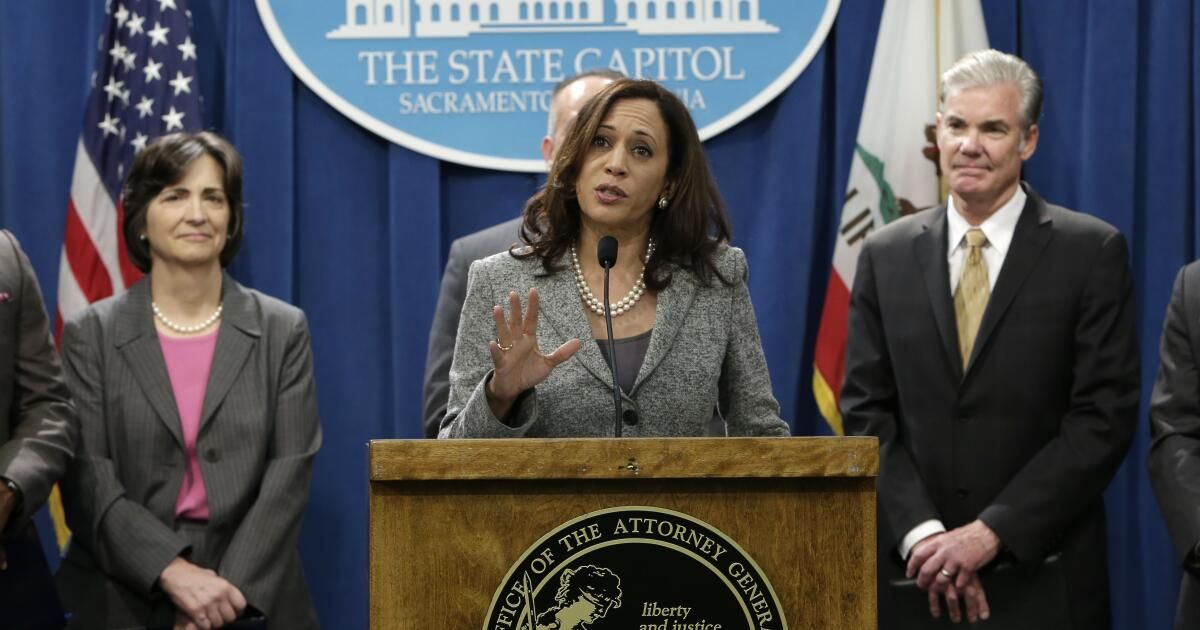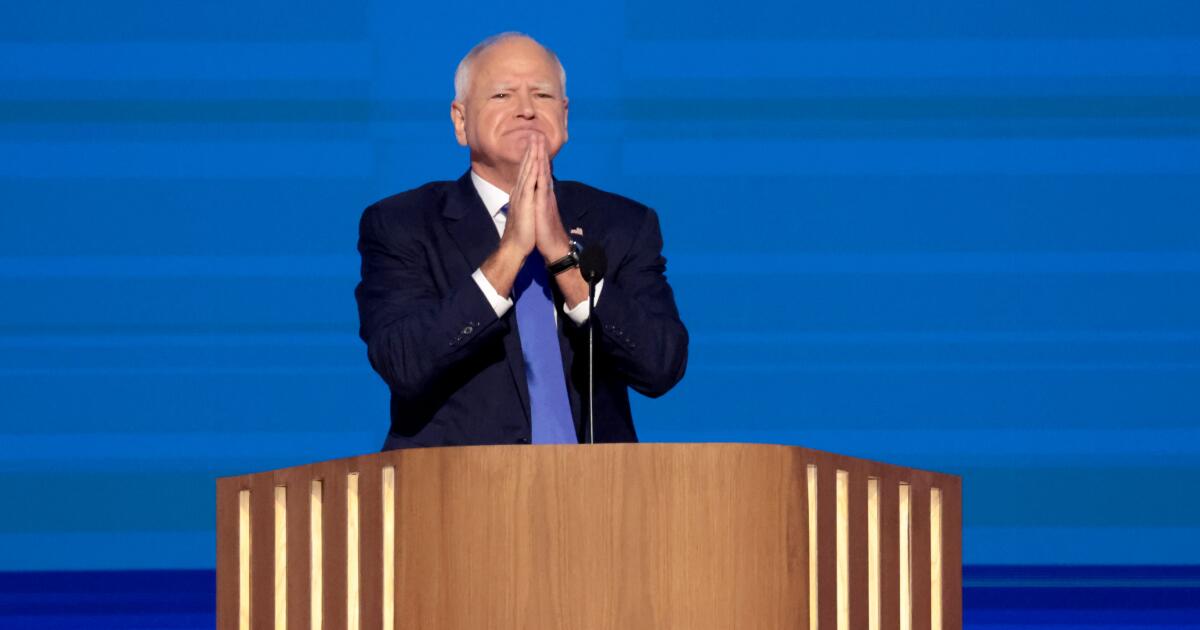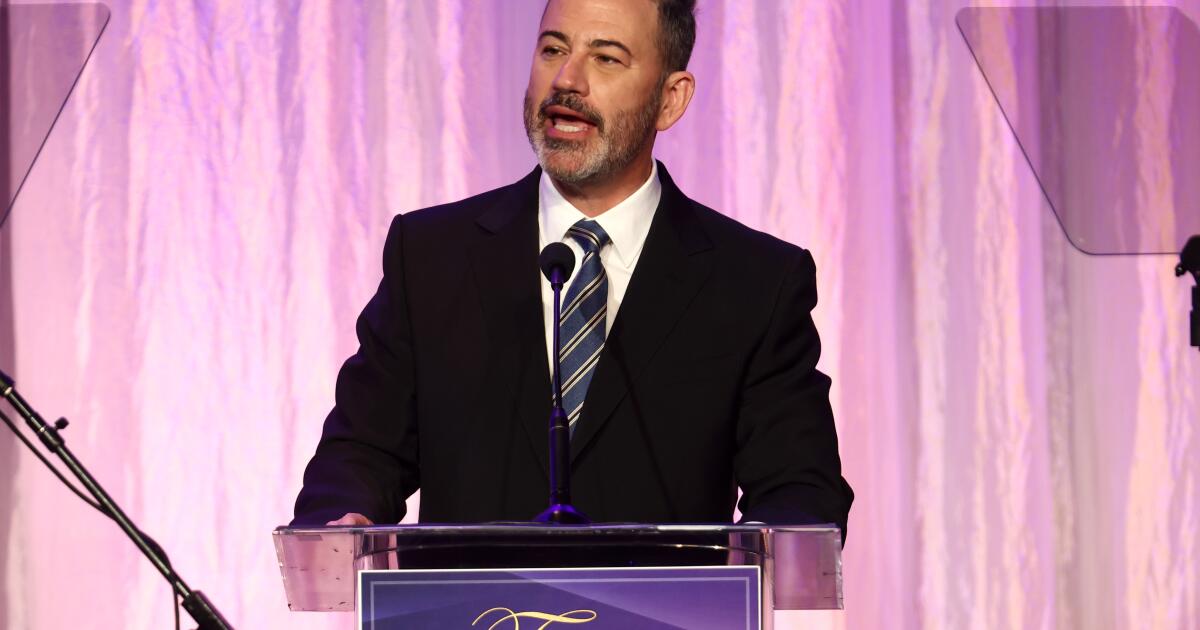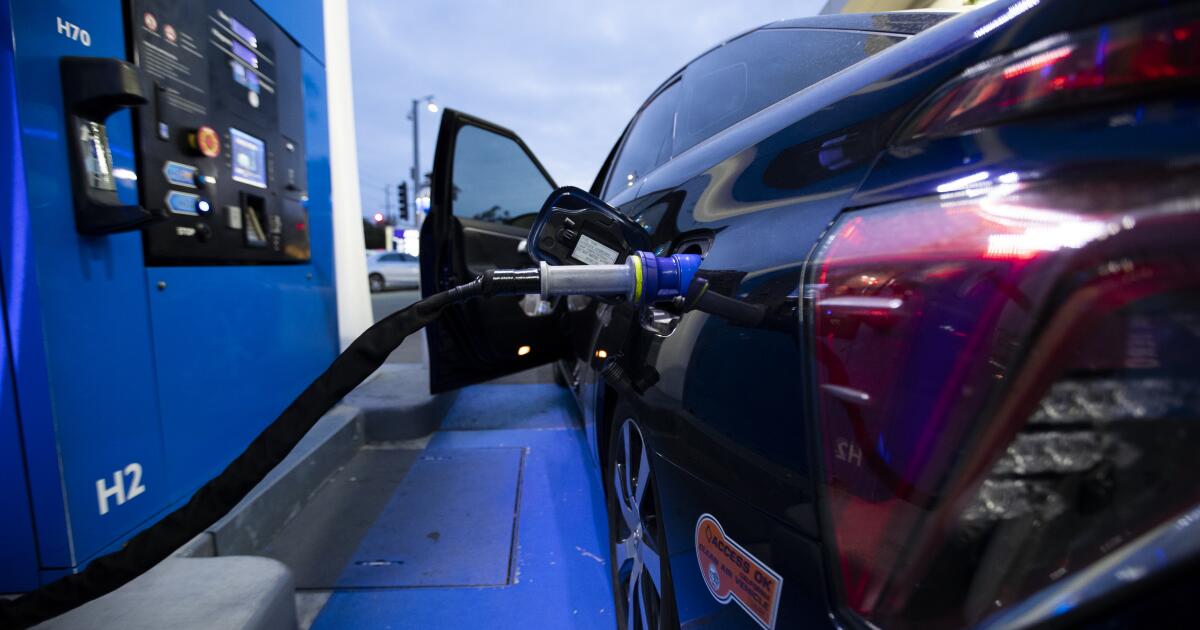The presidential campaign is shaping up to be a tale of two prosecutors, both named Kamala Harris.
Harris' record as a tough-on-crime prosecutor was a constant refrain throughout much of this week's Democratic National Convention.
On Monday, the convention featured a advertisement Tuesday's program was even more blunt, including a five-minute video depicting Harris as a combative prosecutor who unhesitatingly locked up murderers, rapists and child molesters.
A series of speakers echoed that theme, touting Harris’ credibility in terms of the ability to put defendants in jail. In his keynote address Tuesday, former President Obama described Harris, a former San Francisco district attorney and California attorney general, as a tough-minded prosecutor. As with the series of speakers who made similar comments, Obama focused on blunt invocations of rapists, child molesters and other sexual predators.
Harris’ experience as a lawyer has been a central theme of her young campaign since she debuted and delivered the reliable line that drew applause: “I’ve stood up to perpetrators of all kinds … So hear me when I say: I know Donald Trump’s types.”
This all sounds like a classic district attorney campaign, and the kind of rhetoric Republicans employ far more frequently.
Yet while Harris is selling her credentials as a prosecutor, the Trump campaign is spreading a view of her as irresponsible and soft on crime — indeed, “one of the worst prosecutors in history,” in Trump’s characteristically fact-free hyperbole.
This fight over Harris’s identity as a prosecutor is for now at the heart of the campaign, an unusual feature for a presidential contest. But given Trump’s utter familiarity to supporters and opponents alike, the main variable in the campaign may well be which vision of Harris will prevail.
Trump's caricature of Harris's record is based on a series of misleading and false claims. He has baselessly claimed that as district attorney, she “They wouldn't arrest murderers“She wouldn’t arrest anyone.”
Trump also tells his supporters that Harris “supports mandatory gun confiscation” that would leave Americans “defenseless.” That refers to a mandatory confiscation of assault weapons. buyback program which Harris once supported but no longer does.
On immigration law, Trump’s position is that Harris wanted to give “massive amnesty and citizenship” to “all illegals.” The basis for this claim is her previous support for a path to citizenship and amnesty for limited groups like the so-called Dreamers who entered the country illegally as children.
Or Trump accuses Harris of redefining “child sex trafficking, assault with a deadly weapon, and rape of an unconscious person… as nonviolent,” a lie that apparently refers to a 2016 California voter referendum that allowed early release consideration for those convicted of “nonviolent felonies.”
Trump also claims that Harris “supports abolishing cash bail,” which is in fact true. But her conclusion — “that it means bloodthirsty criminals who just killed someone can immediately walk out of jail and kill someone else” — is false. Instead, Harris and others support replacing traditional bail with other standards to detain violent criminals before trial.
You get the idea: Combine the emotional politics of violent crime with Trump’s disregard for the truth, and you have a volatile mix of sensational accusations that make the George H.W. Bush campaign’s infamous attack on Willie Horton look like nonsense. But as the Horton episode showed, misleading claims about crime can be sticky.
And Harris has a complicated record on this issue. When she first ran for president, in 2020, she adopted the identity of a “progressive prosecutor” — more or less the opposite of the portrait painted by the convention this week. That drew criticism from the left based on her past support for initiatives that might strike progressive voters as overly punitive, especially in the wake of George Floyd’s death at the hands of police that year. She also encountered opposition from law enforcement groups because of her longstanding opposition to the death penalty.
Four years later, having suddenly secured the nomination in the wake of President Biden’s disastrous debate, Harris is no longer shying away from the characterizations that undermined her candidacy among the left as she competed in the crowded 2020 primary.
Indeed, Harris’s eagerness to take on the role of tough prosecutor is part of a broader convention theme that will likely continue throughout the campaign: Democrats’ conscious effort to recapture a host of traditional American virtues. The first half of the convention was marked by appeals to an old-time, “Ozzie and Harriet” world of Little League games and church socials. Obama put it best in his clear appeal to undecided or even Trump voters, saying that the majority of the American people “do not want to live in a bitter and divided country.”
Harris is embracing that communal vision while presenting herself as a zealous defender of those who would disrupt it. The central drama of the coming campaign may be whether she can maintain that image in the face of Trump’s darker vision.
Harry Litman is the host of the show Podcast “Talking to the Feds” and the “Speaking of San Diego” Speaker series. @harrylitman












